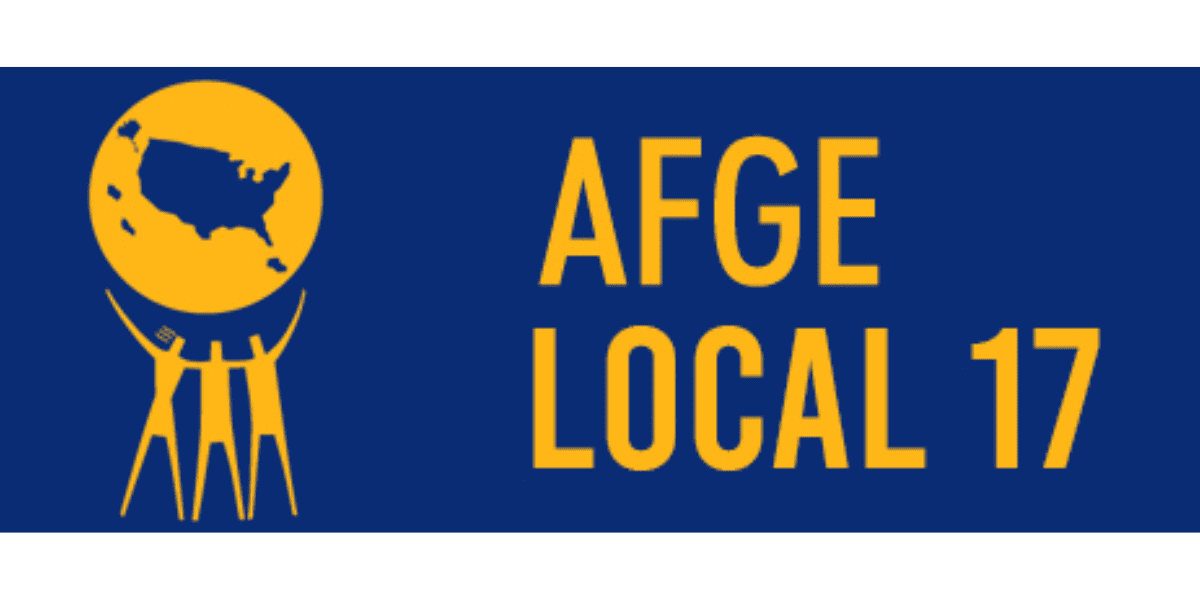President Joe Biden is poised to make appointments in the second half of the year that could shift the approach of several federal agencies that deal with labor rights, and experts say efforts to confirm pending nominations to the National Labor Relations Board could be the most significant.
As he approaches the halfway point of his first year in office, Biden still has numerous appointments to make at agencies that deal with union rights in both the public and private sectors. The most high-profile of those is the NLRB, where Biden is on the doorstep of securing three confirmations experts expect will swing the board in a more pro-labor direction.
Mark Carter, a partner at Dinsmore & Shohl LLP, said he expects the confirmation fight that will heat up in the Senate this month over Biden’s NLRB nominees to be contentious given the attention the board receives.
“I think the NLRB is going to be the focal point,” Carter said. “It is the agency that is generally of most concern to one of the president’s primary stakeholders, that is organized labor.”
Getting the NLRB Nominations Across the Finish Line
Biden has nominated Gwynne Wilcox and David Prouty to seats on the NLRB, which would give Democrats majority control for the first time since 2017, as well as Jennifer Abruzzo to serve as the agency’s general counsel. Experts expect that all three will eventually take office, but they could face significant headwinds from Republican senators that could delay the process.
Abruzzo has so far been the focus for Republicans and management-side advocates, who have asked whether she had a hand in Biden’s controversial decision to fire former general counsel Peter Robb on Inauguration Day. At her hearing in April, Abruzzo said that as a member of Biden’s transition team, she “elevated” concerns about Robb’s management that the team heard from “internal and external stakeholders.”
The U.S. Senate Health, Education, Labor and Pensions Committee deadlocked on a vote to send Abruzzo’s nomination for a confirmation vote in the full Senate, meaning leadership will need to hold a separate vote to bring her out of committee. Michael Lotito, a shareholder at the management-side firm Littler Mendelson PC, said Republican holds on the nomination could delay her confirmation, but they could be overcome by Democrats.
While Republicans cannot block Abruzzo’s confirmation on their own, Lotito said united GOP opposition will at least force additional votes and cost floor time that is valuable in the Senate. That is especially true given the potential need to have Vice President Kamala Harris in town to cast tie-breaking votes, Lotito said.
“These logistical problems are not talked about, but they’re important in actually getting things done,” Lotito told Law360.
Wilcox and Prouty are still awaiting a hearing in the HELP committee, though experts expect it to take place sometime in mid-July. The Senate is scheduled to leave Washington for a month starting Aug. 9, putting a compressed timeline on the confirmations.
Wilcox would take a vacant seat, but Prouty is nominated to fill the seat current board member William Emanuel will leave Aug. 27. Jerry Hunter, who served as NLRB general counsel from 1989 to 1993, said Biden’s decision to nominate Prouty to a still-occupied seat highlights the administration’s commitment to swiftly flipping the board.
“It shows that the administration, and obviously organized labor, are interested in making changes,” said Hunter, who now works at the management-side firm Bryan Cave Leighton Paisner LLP.
Wilma Liebman, a former NLRB chair and long-serving member, said Wilcox and Prouty are both qualified nominees who she does not expect will face particularly stiff opposition from business and management-side interests.
“If the Republicans choose to make an issue, I think it will be because they can and because of politics, rather than anything in particular about them,” Liebman said.
Lotito said Republicans are likely to raise conflict of interest objections to the nominees, as both worked with Service Employees International Union locals. He said Republicans may look to reprise arguments Democrats lobbed against Emanuel about potential conflicts of interest stemming from his past work with major corporations and banks.
“Actions create reactions, and there is a certain sense that people are going to play this back in the same way that it was played against Emanuel,” Lotito said.
Carter, who served on the Federal Service Impasses Panel during the Trump and George W. Bush administrations, said it is possible that party leadership will negotiate an agreement that would place Biden’s nominees on the board while also keeping at least one seat in control of Republicans instead of going vacant.
Known as a package, Liebman said the arrangement has been used in the past for board seats, but the current state of the Senate may make it a more difficult prospect for the current positions.
“It wouldn’t shock me, because it’s happened in the past,” Liebman said. “Whether there’s sufficient good will to make that happen, I’m not really sure, it’s hard to say.”
Even if all three of Biden’s board nominations make it through the confirmation process successfully, it will take time for them to make a significant impact, experts said. The board uses active litigation to shift its existing labor law precedent, so major reversals of Trump-era decisions will need to wait until disputes reach the new Democratic board.
“I would not expect significant reversal of existing board precedent to occur before the first quarter of 2022,” Carter said.
Spokespeople for Democrats and Republicans on the Senate HELP Committee and for Senate Majority Leader Chuck Schumer, D-N.Y., did not immediately respond to requests for comment. The White House also did not immediately respond to a request for comment.
Securing a Quorum at the Merit Systems Protection Board
Biden is also poised to bring to an end a four-year period during which the Merit Systems Protection Board has lacked a quorum to rule on employee appeals of personnel actions taken by federal agencies. President Donald Trump put forward three nominees to fill out the board in 2018, but none were confirmed.
At the end of April, Biden nominated Kator Parks Weiser & Harris PLLC attorney Cathy Harris to serve as chair of the MSPB. Harris leads the firm’s sexual harassment and LGBT practice groups and previously worked as a federal prosecutor and adjunct professor at George Washington University, according to a White House press release.
Biden sent Harris’ nomination to the Senate on June 24, and the same day announced he was also nominating Raymond Limon, who serves as chief human capital officer at the U.S. Department of the Interior.
Allen Shoikhetbrod, a partner at Tully Rinckey PLLC, said he expects both nominees to make it through the Senate confirmation process by the end of the year, which would give the board a quorum for the first time since January 2017. In the time it has lacked a quorum, the agency’s administrative law judges have been deciding cases, leaving nearly 3,000 petitions for review pending before the board, according to the most recent MSPB data through the end of May.
Some litigants have taken to bypassing the board and bringing their cases to the Federal Circuit, Shoikhetbrod said.
Shoikhetbrod told Law360 that Harris and Limon, if confirmed, are likely to be in line with the Biden administration’s broader shift to favor the rights of federal employees.
“With a Democratic administration, typically they are more employee-friendly,” Shoikhetbrod said.
But the first case the new appointees consider may not be directly related to federal employee rights, Shoikhetbrod said, but instead resolve whether the agency’s administrative law judges are constitutionally appointed. The issue has come to the forefront after the U.S. Supreme Court said three years ago in Lucia v. Securities and Exchange Commission that administrative law judges at that agency were unconstitutionally appointed.
“They need to resolve that issue because potentially it could open up decisions all the way back from when the MSPB first started,” Shoikhetbrod said.
A New Director at the Federal Mediation and Conciliation Service
Experts also said the confirmation of Javier Ramirez, whom Biden tapped to lead the Federal Mediation and Conciliation Service on June 9, could be significant. Ramirez is the agency’s executive manager of the division of agency initiatives, and has been with the FMCS since 2005.
The FMCS is a federal agency that mediates labor disputes, including over collective bargaining agreements, and keeps a panel of arbitrators that parties can request to weigh in on their disagreements.
Harry Katz, a professor at the Cornell University School of Industrial and Labor Relations who knows Ramirez, said Ramirez is unlikely to face opposition in the Senate and comes to the nomination with a reputation of being able to work with both management and labor.
Katz said that once he is confirmed, Ramirez could be open to expanding the range of disputes the agency becomes involved in. While the FMCS has limited itself to disputes between parties involved in a formal collective bargaining relationship, Katz said it is possible that Ramirez will broaden that view to cover associations that advocate for workers in a less formal relationship.
“I think the time is right for the FMCS to broaden its scope and Javier, I think, is open to at least considering that,” Katz said. “I don’t know that he’s going to aggressively promote it, but I think he’s willing to consider it.”.
Liebman, the former NLRB chair, agreed that Ramirez could be “open to creative expansion of what the mediators do,” though it depends on the FMCS’ budget and view of its jurisdiction.





